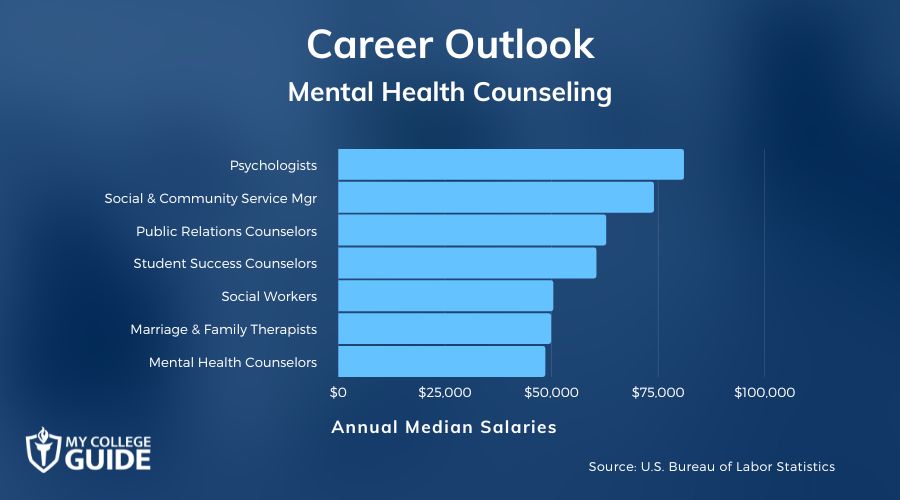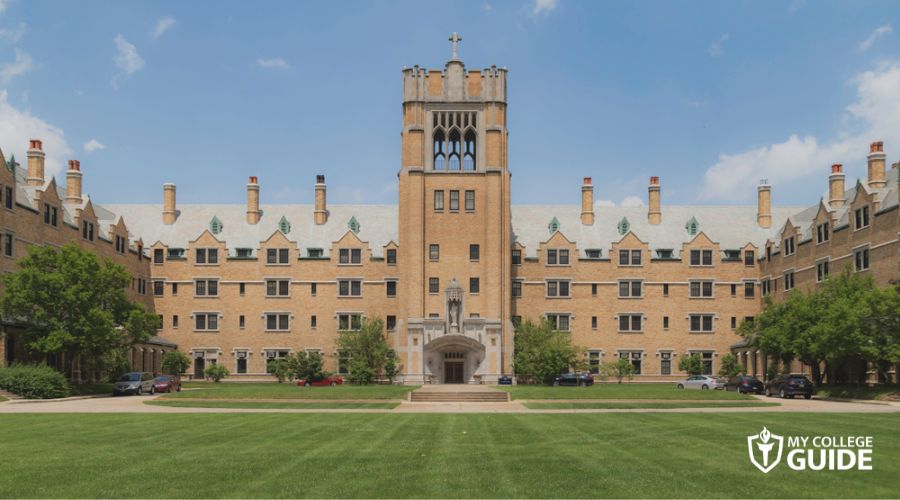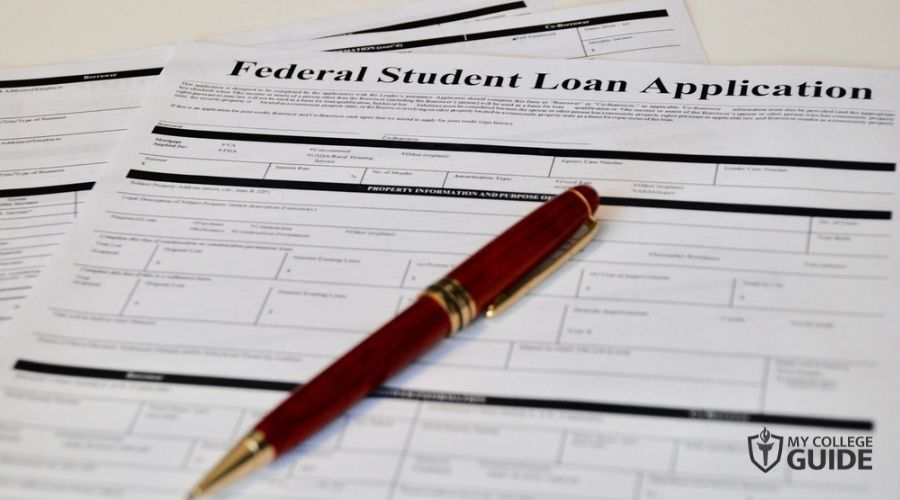If you want to work with patients to better their social and emotional lives, you may be interested in learning how to become a mental health counselor.

There are plenty of opportunities for those considering a career in the mental health field.
Editorial Listing ShortCode:
A degree in mental health counseling can help you start a career in counseling where you’ll be able to help others by diagnosing and treating mental health problems and illnesses.
How to Become a Mental Health Counselor

The requirements to become a mental health counselor are a bit different in each state. Even still, take a look at this general overview of how to be a mental health counselor. It will give you a good idea of what to expect during your preparation period.
- Earn a bachelor’s degree. A bachelor’s degree alone isn’t enough for a career in mental health counseling, but it’s an important first step. Choose a regionally accredited school and pursue a major related to counseling, psychology, sociology, behavioral health, or a similar field.
- Go to grad school. Most counseling jobs require a master’s degree in the field. It’s a good idea to choose a school that’s accredited by the Council for Accreditation of Counseling & Related Educational Programs (CACREP) so that you’ll know your studies are in line with current industry standards.
- Get in-person experience. During your graduate program, you’ll complete practicums or internships in which you’ll learn how to use your classroom skills in real-world settings. To complete your state’s licensure requirements, you may also need to accrue additional supervised work hours after graduating with your master’s degree.
- Take licensure tests. To show that you’ve learned the necessary information in school, you’ll need to pass the National Counselor Examination (NCE) or a similar test. Different states may require different exams.
- Apply for licensure. Once you’ve finished all the educational requirements, internship hours, and exams that your state requires, you can apply for your mental health counselor license.
- Pursue specialty certifications. As a licensed counselor, you can choose to specialize in a certain branch of mental health. Certification programs will demonstrate your expertise.
- Stay current with your credentials. Continuing education credits and license renewals will help you maintain your counselor status.
Check with your state licensing board to learn more about your path to licensure.
Types of Mental Health Counseling Degrees

If you’re looking into the various mental health counseling degrees available, you may be wondering which one to choose. This breakdown may help:
- Bachelor’s in Mental Health Counseling: There aren’t many bachelor’s degree programs that will get you into an advanced career in mental health counseling. Instead, a four-year undergraduate degree should be considered a foundation to prepare you for a master’s degree in mental health counseling.
- Master’s in Mental Health Counseling: Obtaining a master’s degree in mental health counseling will help you advance your carer. Core courses will likely include foundations of counseling, abnormal psychology, and r research and evaluation in behavioral sciences.
- Doctorate in Mental Health Counseling: The American Psychological Association (APA) arranges doctoral programs into three categories: clinical (compiling and analyzing research on individuals), counseling (treating mental and emotional health), and school psychology (child and adolescent mental development).
If you are looking to help people with rehab, a bachelor’s degree may be right for you, however, if you’re looking to open a private practice or conduct research, you may want to look into obtaining your Ph.D.
5 Things You Can Do as a Mental Health Counselor
Mental health counseling can be a fulfilling career accompanied by a solid income, which will likely increase with each degree you obtain. As a mental health counselor, you have various options to help those in need.
1. Mental Health Counselor

This career option is perfect for those who enjoy working with patients on a one-on-one basis to help patients achieve well-being.
Editorial Listing ShortCode:
You will likely deal with a range of mental health issues including substance abuse, trauma, or the everyday stresses of life. Mental health counselors help by teaching coping mechanisms.
2. School Counselor

If you enjoy working with children and adolescents in a school environment, a school counselor’s career can be both rewarding and financially satisfying.
As a school counselor, you will work with students to identify and address their needs emotionally, mentally, and academically. Your findings will help formulate plans that can ensure academic and personal success.
3. Substance Abuse Counselor

Drawn to help those suffering from addiction? A career as a substance abuse counselor will likely put your calling to good work.
Substance abuse counselors can work with those who suffer from alcohol addiction, drug addiction, eating disorders, or behavior issues stemming from addiction. You may work with individual patients or in group settings, and work to each various ways to modify behavior to help with recovery.
4. Marriage and Family Therapist

With a focus on communication, empathy, and family dynamics, a career as a marriage and family therapist will allow you to work with those seeking to strengthen and solidify relationships.
As a marriage and family therapist, you will work with families or couples to identify areas lacking communication or understanding and guide them through those pain points.
5. Geriatric Counselor

Because aging tends to bring its own unique issues, such as retirement transition, health concerns, and death, to the table, you’ll be working with the elderly to provide solutions, communication, and mental wellness.
Editorial Listing ShortCode:
Helping the elderly can include providing physical and psychological assessments and services along with counseling and direct care for any issues that may be affecting their quality of life.
Mental Health Counseling Specializations

There are many different types of mental health counselors. You should consider which specialty is right for you and plan your graduate program accordingly.
- Addiction and Substance Abuse Counseling: If you want to help people with addictions to drugs, alcohol, gambling, or other issues, then this mental health specialization would be a good fit.
- Behavioral Disorder Counseling: As a behavior specialist, you might offer counseling for children and adults with attention deficit hyperactivity disorder, oppositional defiant disorder, and similar conditions.
- Marriage and Family Therapy: If you want to help couples with their relationship problems or work to strengthen family units, then you might want to specialize in marriage and family therapy.
- Rehabilitation Counseling: By studying rehabilitation counseling, you can learn to help people with disabilities contribute to their communities and gain independence.
- Social Work: Since some social workers provide counseling services, you could pursue this educational path and learn how to connect people in need to support services in your community.
Each specialization may include a different set of core college classes, and your state may have different licensure requirements for each area of practice.
Mental Health Counseling Careers & Salaries

As you consider becoming a mental health counselor, it’s helpful to know that the demand for mental health professionals continues to grow.
We’ve put together a list of some of the common jobs available with a mental health counseling degree and their respective annual median salaries based on data from the U.S. Bureau of Labor Statistics (BLS):
| Careers | Annual Median Salaries |
| Psychologists | $81,040 |
| Social and Community Service Managers | $74,000 |
| Public Relations Counselors | $62,800 |
| Student Success Counselors | $60,510 |
| Social Workers | $50,390 |
| Marriage and Family Therapists | $49,880 |
| Substance Abuse, Behavioral Disorder, and Mental Health Counselors | $48,520 |
| Grief Counselors | $45,160 |
| Rehabilitation Counselors | $38,560 |
| Social and Human Service Assistants | $37,610 |
What is the job outlook for a mental health counselor? According to the BLS, substance abuse, behavioral disorder, and mental health counselors are projected to see a 22% job growth over the next decade.
Marriage and family therapists are projected to grow 14% and psychologists will enjoy a 6% growth rate over the same time period. If you enjoy helping and want to guide others to a better life, a mental health counseling degree may be right for you.
How to Choose a Mental Health Counseling Program

As you compare mental health counseling programs, keep the following considerations in mind.
- Accreditation: For a degree that’s widely accepted by employers and other colleges, search for schools with regional accreditation as well as programmatic accreditation from CACREP.
- Format: Think about whether you’d prefer to go to school in a traditional classroom, take online courses, or complete a hybrid program that mixes the two formats.
- In-person experiences: You’ll gain invaluable expertise as you try out your skills in real-world settings, so consider programs that will help you find suitable field locations.
- Specializations: You may want a college that will prepare you for a specific career track within the mental health field, such as relationship therapy or addiction treatment.
- State licensure: Since each state has its own rules, make sure that a program meets the education requirements for a mental health counselor in your state.
You may find several schools that fulfill your preferences for a mental health counseling grad program.
Mental Health Counseling Program Accreditation

Accreditation is the process by which a college has its degree programs reviewed for quality and effectiveness. Choosing an accredited program ensures that your degree will be shown as reputable by employers. It will also allow you to potentially transfer credits easier.
Editorial Listing ShortCode:
For more information and an extensive list of recognized accrediting agencies, take a look at the U.S. Department of Education’s website.
Programmatic Accreditation for Mental Health Counseling Programs
More than ever, mental health degree programs seek Council for Accreditation of Counseling and Related Educational Programs (CACREP) accreditation to ensure that a degree program’s content and quality meet the standards necessary to meet what’s required of the profession.
Two common types of programmatic accreditation include:
- Council for Accreditation of Counseling and Related Educational Programs (CACREP): There are currently more than 870 specialty areas and programs providing CACREP accreditation for master’s and doctoral degree programs in counseling and its specialties
- Masters in Psychology and Counseling Accreditation Council (MPCAC): The MPCAC accreditation provides added value to your degree. The accreditation provides a peer-review process, feedback, and consultation to improve employability and portability for licensure in other states.
For more information, you can visit the CACREPor MPCAC websites or speak to your school’s advisor.
Is Financial Aid Available?

Yes, many students receive financial assistance for their counselor studies. Government aid can come from state and federal programs. Depending on their financial need, undergraduate students might get both grants and loans. Graduate students are more likely to receive loans.
Filling out the Free Application for Federal Student Aid (FAFSA) will help you learn more about your eligibility. Scholarships and fellowships provide funding for students’ educational pursuits.
What Is Mental Health Counseling?

Mental health counseling is the process of a professional helping a patient through various goals to achieve emotional wellness.
Patients seeking to achieve emotional wellness often do so with the guidance of regular appointments for mental health counseling. In a broad scope, mental health counseling can help those suffering from addiction, grief, trauma, or other challenges, such as divorce, family issues, aging, or stress due to employment (or unemployment).
Should I Major in a Mental Health Counselor Degree?

Is an online master of mental health counseling degree right for you? It can be helpful to consider the skills needed for this degree program including:
- Self-motivated
- Hood with time management
- Have basic knowledge of technology
- Passionate about helping others
- Want to help others live their best lives
If these qualities sound like you then an online master’s program could be a great option to obtain your degree.
What Degree Do You Need to Be a Mental Health Counselor?

For those who want to become a certified mental health counselor, a Master of Education (Med) program is probably the best path. Expect to get more hands-on experience (as opposed to research) and present a portfolio or thesis to graduate.
Editorial Listing ShortCode:
If psychological research is your passion, a Master of Science in mental health counseling will expand your psychology knowledge. If you’re not sure you eventually want to become a licensed practitioner or are still considering a career in counseling vs. social work, a Master of Arts program in mental health counseling is a practical option.
What Are the Requirements to Be a Mental Health Counselor?

Mental health counseling calls for specialized skills, specific education requirements for a mental health counselor, and oftentimes, licensure.
To practice in your state, you may need:
- College master’s degree in counseling or a related field: The studies should cover topics like patient assessment, group therapy, addiction, and trauma care.
- Exam: You must receive a passing score on the National Counselor Examination (NCE) or a similar test.
- Professional experience: This includes an internship while in school as well as supervised hours after graduation.
After fulfilling your state’s mental health counselor requirements, you can submit a licensure application to your state.
Is Mental Health Counseling a Good Career?

Yes, mental health counseling is a good career for many professionals. Mental health counseling can be a gratifying career if you enjoy helping others solve problems, gain confidence, and move to a place of mental wellness.
If you’d like to help others overcome their grief after the loss of a loved one, you may want to consider being a grief counselor. If you prefer to work in groups and want to help a larger audience, think about a substance abuse counselor that works with groups. Substance abuse, behavioral disorder, and mental health counselors can earn a median salary of $48,520
Is an online Master’s in Mental Health Counseling a good degree? Yes. You can also use your degree to help students achieve their emotional and academic goals by choosing to be a school counselor. According to the BLS, school counselors can earn a median wage of $60,510.
What Does a Mental Health Counselor Do?

What do clinical mental health counselors do? It’s important to remember that mental health counselors work with all kinds of patients, while others choose to specialize in certain ages, genders, or conditions.
Youth counselors may work with children or teens struggling with bullying, self-esteem, academic pressures, troubles in the home environment, or even struggles with gender identity or sexuality. Addiction specialists may help patients who struggle with a reliance on drugs, alcohol, food, sex, or gambling. This can be done in a private practice, rehabilitation facility, hospital, or in-patient facility, depending on the severity of the issue.
Marriage and family counselors tend to focus on members’ dynamics in one household or with extended family.
Where Do Mental Health Counselors Work?

According to the BLS, many counselors work in outpatient mental health facilities. Others work for hospitals, correctional facilities, or residential mental health treatment programs. Another option involves employment with a social or family services agency.
Specialized counseling positions may have different employers. For instance, substance abuse counselors may work for inpatient or outpatient programs. Employment opportunities for rehabilitation counselors may include nursing facilities, rehabilitation agencies, and government programs.
Editorial Listing ShortCode:
Some marriage and family therapists are self-employed. Others work in healthcare offices, outpatient treatment facilities, or family services agencies.
What Skills Do You Need to Work in Mental Health?

Working in the mental health field will require various skills that can help with successful treatment for patients.
Skills that can be helpful include:
- Good communication and listening skills
- Empathy
- Knowledge of support resources
- Understanding of human psychology, ethics, organization
- Good record keeping
If you possess these skills and have a natural desire to help others, this career path may be a rewarding path for you.
How Long Does It Take to Become a Mental Health Counselor?

The time it takes to become a mental health counselor varies based on state licensure. However, a bachelor’s degree will take on average, about 4 years, while an associate’s degree, will take less time and run about 2 years.
After achieving your bachelor’s degree, you can opt to continue your education with a 2 to 3-year master’s degree, which may open the door to more advanced and higher-paying positions. Most doctorate degrees in psychology take between 4 and 7 years and provide the broadest spectrum of career pursuits in the mental health field.
What’s the Difference Between an LMHC vs. LCSW?
If you want a job that involves helping others, you could become a mental health counselor or a social worker.
| Licensed Clinical Social Worker (LCSW) | Licensed Mental Health Counselor (LMHC) |
|
|
Counseling job titles aren’t consistent from one state to another, so your state may use different terms for roles similar to these. Be sure to talk to your advisor so you understand exactly what is required if you want to learn how to become a licensed mental health counselor.
What’s the Difference Between a Mental Health Counselor vs. Psychologist?
You could provide mental health support as a counselor or a psychologist. Understanding the differences between these two professions can help you decide which job is right for you.
| Mental Health Counseling | Psychology |
|
|
Some psychologists specialize in clinical mental health psychology or counseling psychology.
Getting Your Mental Health Counseling Degree Online

When considering how to be a mental health counselor, it’s helpful to know that programs offering online counseling degrees are available.
There are some benefits and resources that can help you thrive when taking an online program, such as online student support services, clinical experience placement assistance, smaller class sizes, and live discussions. An online mental health counseling degree opens the doors to a lot of opportunities. If you enjoy helping others and want to see others succeed and work past their hardships, this may be the right career path for you.
You can start by researching accredited online colleges and online programs for mental health.
